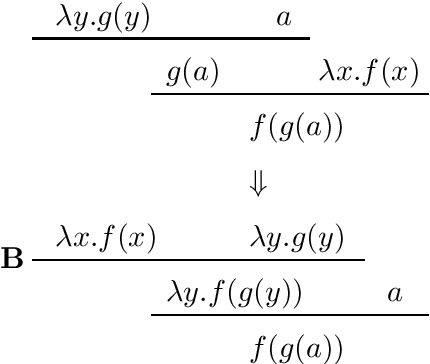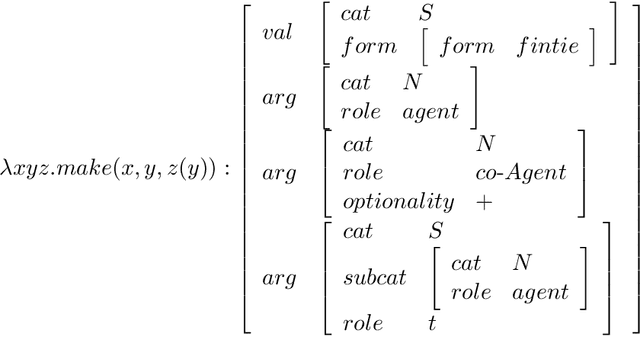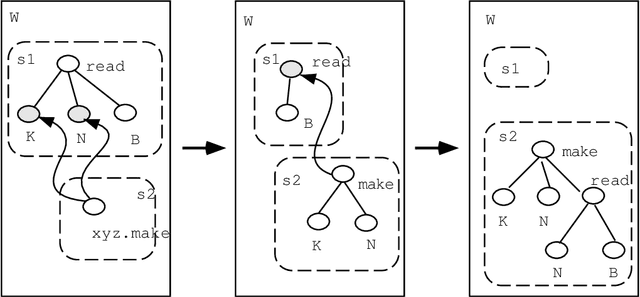Free-ordered CUG on Chemical Abstract Machine
Paper and Code
Nov 16, 1994



We propose a paradigm for concurrent natural language generation. In order to represent grammar rules distributively, we adopt categorial unification grammar (CUG) where each category owns its functional type. We augment typed lambda calculus with several new combinators, to make the order of lambda-conversions free for partial / local processing. The concurrent calculus is modeled with Chemical Abstract Machine. We show an example of a Japanese causative auxiliary verb that requires a drastic rearrangement of case domination.
* COLING 94, five pages, one PS file of figure `t.eps'
 Add to Chrome
Add to Chrome Add to Firefox
Add to Firefox Add to Edge
Add to Edge